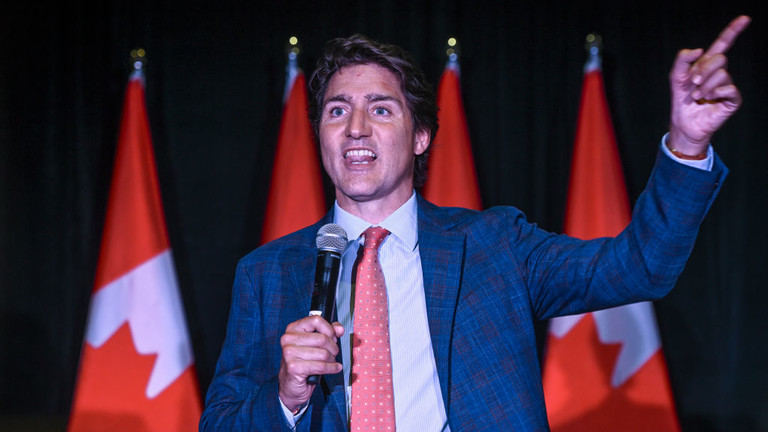What’s behind the alleged ‘Chinese bot’ operation in Canada?
Ottawa accuses Beijing of running a social media operation against its politicians. It’s likely a pretext for more control and censorship Read Full Article at RT.com

Ottawa has accused Beijing of running a social media operation against its politicians. It’s likely a pretext for more control and censorship
Canada is yet again ramping up paranoia about China. Ottawa claims that Beijing has engaged in a bot-powered “spamouflage” campaign on social media aiming to discredit China’s critics among Canadian politicians and MPs, including Prime Minister Justin Trudeau.
Over the past few months, Canada’s intelligence services have repeatedly claimed China is influencing its politics in a malign way. Although they have never provided substantive evidence that this is the case, this “yellow peril” paranoia has become the new normal in the country and it is repeated as such by the establishment media.
Chief among those promoting this cyber-interference narrative is the Australian Strategic Policy Institute (ASPI), an inauthentic think tank which is funded by the Australian Department of Defense, several Western defense industry corporations, and the US Department of State. Why China would have such an agenda in interfering in a country as inconsequential as Canada, which does not even make its own foreign policies, instead following the American lead on everything, remains to be seen. Yet one thing is evidently clear, as has been with past “Russian interference” narratives: accusations of “foreign influence” and “social media manipulation” are used to justify and mandate censorship and narrative control, shutting down non-elite opinions as conspiracy theories promoted by adversarial states.
2016 was a year that changed the world, primarily because it represented the first moment in history when social networks were universally recognized for their capability to sway public opinion and elections in ways Western elites had never seen before, providing a new challenge to their monopoly over media discourse. Indeed, in that year, the victories of the “Leave” campaign in the referendum on Britain’s EU membership, and of Donald Trump in the US presidential race, proved to be among the most shocking, unexpected and controversial election results ever, which played into a deeply polarized climate divide in these respective countries.
The result of these outcomes was that establishment elites in these countries, especially the US, began a campaign to denounce the legitimacy of the results by depicting them as the product of a state-backed interference campaign from Russia. It thus became the popular, if conventional, narrative in the US that Trump’s victory was attributed to Putin, while the social and economic disillusionment that propelled him to victory was dismissed. But there was also more to it than that, the weaponization of “Russian interference” ushered in a new era whereby state structures in the West began to exert increased power over the anarchy of social media and use the pretext of “national security” in order to police narratives.
As this new environment emerged, new buzzwords emerged: “misinformation”, “bot accounts” and “fake news.” Thus, military-industrial-complex-funded organizations such as the ASPI sprung up to soak up funding and provide “consultancy” on these so-called foreign threats. This would act as a reinforcement to the narrative that was being crafted and thus inject fear into the population. With these foundations laid, it has since been true that, with every new crisis to hit the world, state control over big social media platforms has increased. By 2018-2019, it had become the policy to effectively start banning, deplatforming and demonetizing the worst deemed offenders to the conventional narrative.
By the time of the Covid-19 pandemic, it became the norm to silence those who spoke out about lockdowns and vaccines. Then, following the Ukraine war, Western social media policing was taken to a whole new level which actively involved the outright censorship and banning of media outlets who provided a different outlook on the conflict, such as RT. The specter of foreign interference has allowed Western countries to become more authoritarian as they seek to wrest back narrative control from social media. This had given people power and access to information they previously did not have, which is ironic, given that they accuse China of doing just that. Thus, when Elon Musk took over Twitter/X, his free-speech policies drew threats from the European Commission because the social network is deemed to be inadequately following its censorship agenda.
Thus, as Beijing is routinely accused of interfering in Canada, remember where that can lead. Such a narrative will allow the Canadian government, among others, to exert more control over social media platforms and silence dissenting voices – not just on China, but a variety of topics. It has always been an age-old political tactic to close down open debate on a subject by creating and instrumentalizing fear, arguing that to take a particular view on a matter constitutes a threat to the nation and that those who are pushing that point of view are in some way compromised, thus removing any merit, logic or reason to the argument in question.






















